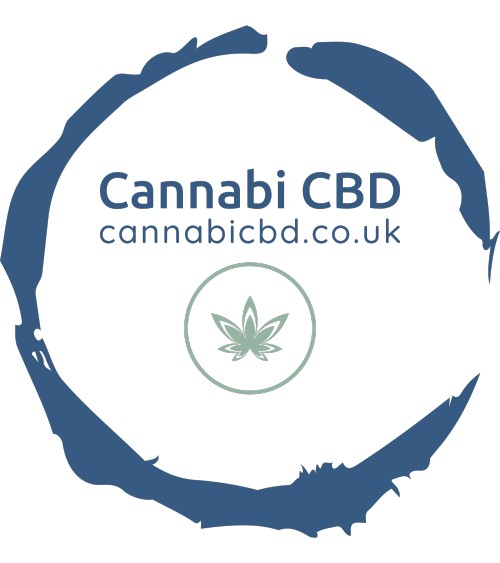Adopting a vegan diet has become increasingly popular over the years, driven by health, environmental, and ethical considerations. This plant-based eating pattern excludes all animal products, including meat, dairy, and eggs, focusing instead on vegetables, fruits, grains, legumes, nuts, and seeds. While there are numerous benefits associated with a vegan diet, it also comes with its challenges and potential nutritional deficiencies. Some argue that a flexitarian diet, which is more flexible and incorporates occasional animal products, might offer a more balanced and sustainable approach for some individuals. This comprehensive guide will explore the health implications of a vegan diet, its benefits and drawbacks, and why a flexitarian approach might be a better option for some.
Understanding Vegan and Flexitarian Diets
Vegan Diet
A vegan diet is strictly plant-based and excludes all animal products. It emphasizes whole foods, such as fruits, vegetables, grains, legumes, nuts, and seeds.
Flexitarian Diet
A flexitarian diet is primarily vegetarian but allows for occasional meat and animal product consumption. It’s flexible, encouraging plant-based foods while not completely eliminating meat or fish.
Health Benefits of a Vegan Diet
Reduced Risk of Chronic Diseases
Studies have shown that vegan diets can reduce the risk of heart disease, type 2 diabetes, hypertension, certain cancers, and obesity.
Nutrient-Rich
Whole, plant-based foods are rich in fiber, vitamins, and minerals, contributing to overall health and well-being.
Weight Management
A vegan diet tends to be lower in calories and can be effective for weight loss and management.
Digestive Health
High fiber intake from a plant-based diet supports digestive health.
Potential Drawbacks and Nutritional Concerns
Nutritional Deficiencies
Vegans are at risk of certain nutritional deficiencies, including vitamin B12, vitamin D, omega-3 fatty acids, iron, calcium, and zinc. Supplementation or careful planning is often necessary.
Protein Quality
While plenty of plant-based proteins exist, they often lack one or more essential amino acids. Vegans need to eat a variety of protein sources to meet their needs.
Social and Practical Challenges
Dining out, social gatherings, and travel can pose challenges for strict vegans due to limited options.
Why Flexitarian Might Be Better
Balance and Flexibility
The flexitarian diet offers a more balanced approach by including all food groups, which can make it easier to meet nutritional needs without strict limitations.
Social and Lifestyle Considerations
Flexibility makes it easier to enjoy social occasions and family meals without the stress of finding strictly vegan options.
Nutritional Adequacy
Occasional inclusion of animal products can help prevent the nutritional deficiencies common in a strict vegan diet.
Environmental Impact
While a vegan diet is praised for its low environmental footprint, a flexitarian diet also significantly reduces impact on the environment compared to a standard Western diet, making it a sustainable choice for those not ready to fully commit to veganism.
Implementing a Healthy Vegan or Flexitarian Diet
Focus on Whole Foods
Whether vegan or flexitarian, focusing on whole, minimally processed foods ensures a nutrient-rich diet.
Plan for Nutrients
Pay special attention to nutrients that may be lacking. Vegans should consider fortified foods or supplements for B12, D, and omega-3s. Flexitarians have a bit more leeway but should still plan their diet to cover all nutritional bases.
Variety is Key
Eating a wide variety of foods ensures a range of nutrients and reduces dietary boredom.
Consult Professionals
Especially for those with specific health conditions, consulting a dietitian or nutritionist can help tailor the diet to individual health needs.
FAQs
Can a vegan diet provide enough protein?
Yes, a well-planned vegan diet can meet protein needs through sources like legumes, tofu, tempeh, nuts, and seeds. Variety is essential to ensure all amino acids are consumed.
Is a vegan diet safe for everyone?
While a vegan diet can be healthy for all stages of life, certain individuals, such as pregnant women, children, and those with specific health conditions, may need careful planning and possibly supplementation to meet their nutritional needs.
How can I ensure I’m getting enough vitamin B12 on a vegan diet?
Vegans should consider B12-fortified foods or a B12 supplement, as this vitamin is primarily found in animal products.
Can being flexitarian really impact the environment?
Yes, reducing meat consumption can significantly lower your carbon footprint, water use, and land use. Even small changes can have a big impact over time.
Is it more expensive to follow a vegan or flexitarian diet?
The cost can vary. Whole plant foods like grains, legumes, and seasonal vegetables are often less expensive than meat and processed foods. However, specialty vegan products can be pricier. Flexitarianism potentially offers the best of both worlds by allowing for a wide range of budget-friendly options.
How do I transition to a vegan or flexitarian diet?
Start gradually. Incorporate more plant-based meals into your diet while reducing meat and animal products. Explore plant-based recipes and experiment with new foods to keep it interesting.
Can I get enough iron on a vegan or flexitarian diet?
Yes, but plant-based iron sources are less easily absorbed than animal-based sources. Combine them with vitamin C-rich foods to enhance absorption.
Conclusion
Both vegan and flexitarian diets have their benefits and can be healthy lifestyle choices. The best diet is one that you can maintain long-term and fits your health needs, ethical beliefs, and environmental concerns. While a vegan diet offers numerous health benefits and is impactful in terms of animal welfare and environmental sustainability, it requires careful planning to avoid nutritional deficiencies. The flexitarian diet, with its flexibility and balance, may be a more suitable option for those looking to improve their health while still enjoying a wide variety of foods, including occasional animal products. Ultimately, the choice between veganism and flexitarianism is deeply personal and should be made based on individual health needs, preferences, and values.
- The Ultimate Guide to CBD Sleep An In-Depth Analysis By Slumber CBD - April 13, 2024
- Golden Delights: A Connoisseur’s Journey with Just Kratom’s Gold Shots - April 13, 2024
- Comprehensive Review The Best CBD Sleep Solutions By Slumber CBD - April 13, 2024
